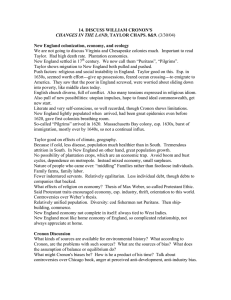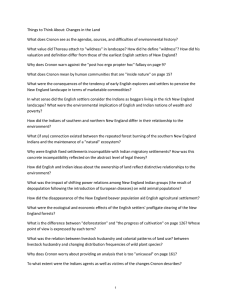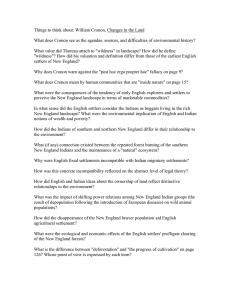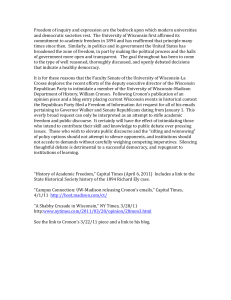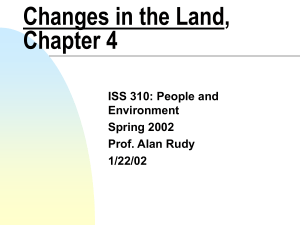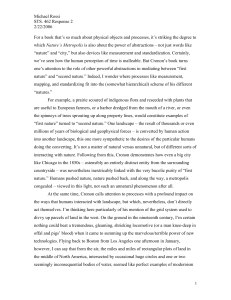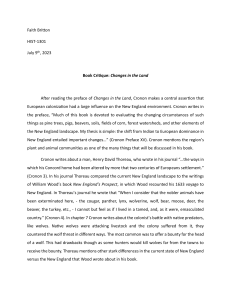21A 441 Study Questions: Taylor, Chaps. 8&9 Changes In The Land,
advertisement
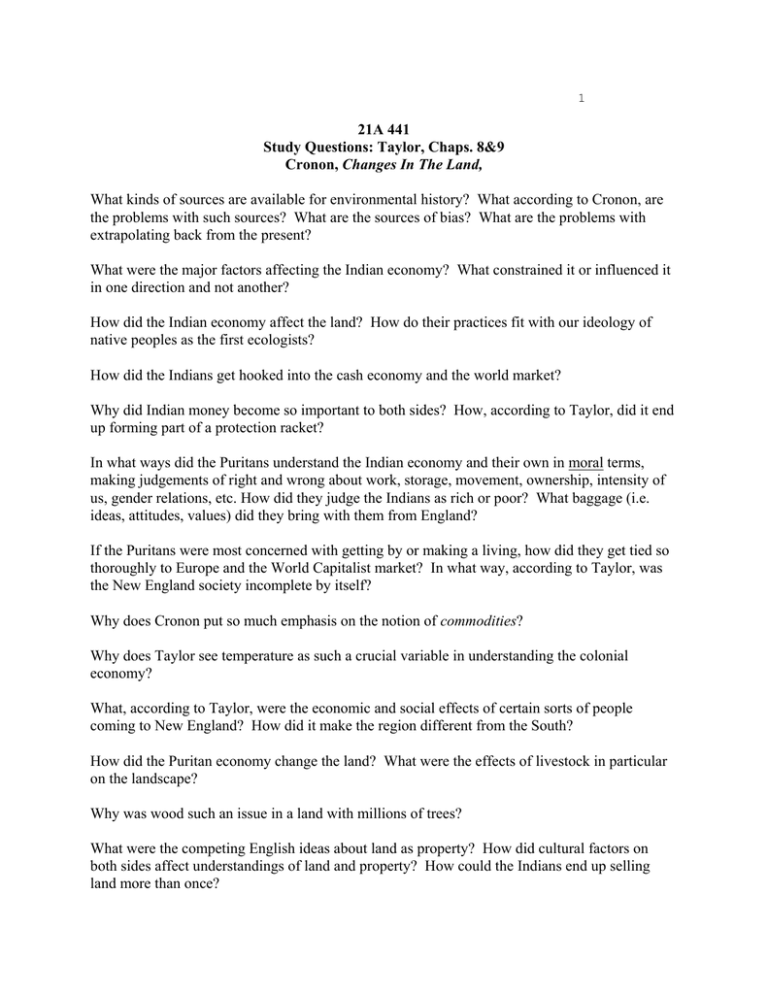
1 21A 441 Study Questions: Taylor, Chaps. 8&9 Cronon, Changes In The Land, What kinds of sources are available for environmental history? What according to Cronon, are the problems with such sources? What are the sources of bias? What are the problems with extrapolating back from the present? What were the major factors affecting the Indian economy? What constrained it or influenced it in one direction and not another? How did the Indian economy affect the land? How do their practices fit with our ideology of native peoples as the first ecologists? How did the Indians get hooked into the cash economy and the world market? Why did Indian money become so important to both sides? How, according to Taylor, did it end up forming part of a protection racket? In what ways did the Puritans understand the Indian economy and their own in moral terms, making judgements of right and wrong about work, storage, movement, ownership, intensity of us, gender relations, etc. How did they judge the Indians as rich or poor? What baggage (i.e. ideas, attitudes, values) did they bring with them from England? If the Puritans were most concerned with getting by or making a living, how did they get tied so thoroughly to Europe and the World Capitalist market? In what way, according to Taylor, was the New England society incomplete by itself? Why does Cronon put so much emphasis on the notion of commodities? Why does Taylor see temperature as such a crucial variable in understanding the colonial economy? What, according to Taylor, were the economic and social effects of certain sorts of people coming to New England? How did it make the region different from the South? How did the Puritan economy change the land? What were the effects of livestock in particular on the landscape? Why was wood such an issue in a land with millions of trees? What were the competing English ideas about land as property? How did cultural factors on both sides affect understandings of land and property? How could the Indians end up selling land more than once? 2 How do Puritan colonists seem the same or different in their goals/attitudes etc. towards the Indians than the colonists of Hispanic America? What factors might affect or shape Cronon's interpretation? In what ways might his interpretation be a product of his own time and its preoccupations?
